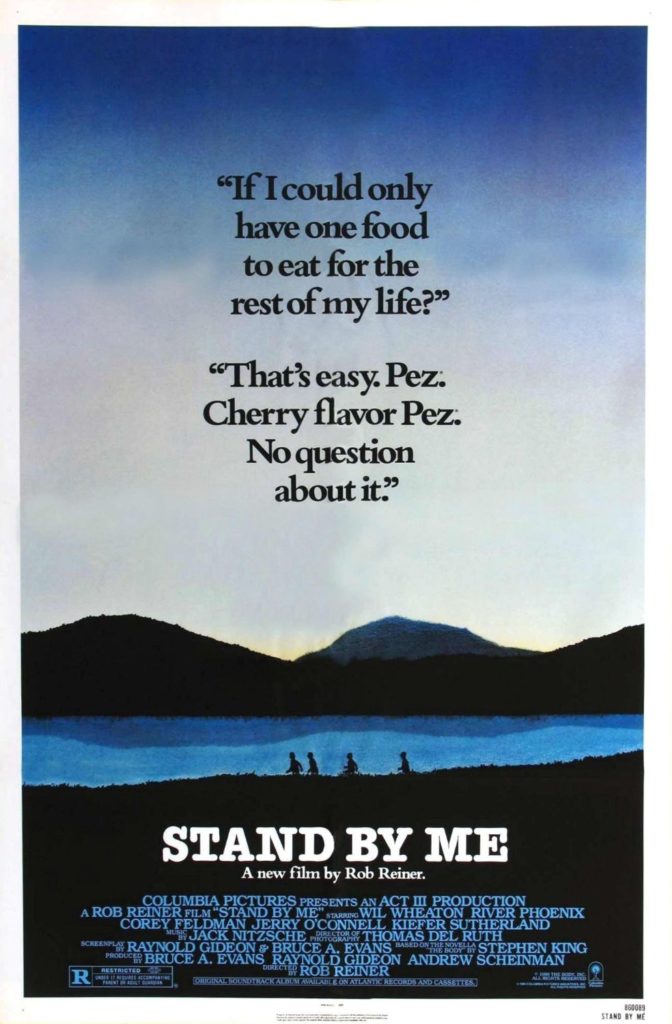
STAND BY ME (1986) is one of those quintessential summer films that can make you ache for childhood: long stretches of lazy afternoons, friendships long forgotten, that lost sense of adventure, but most of all, the beauty of innocence. Set in a small town in Oregon, the film follows four boys: Gordie (Wil Wheaton), Chris (River Phoenix), Teddy (Corey Feldman) and Vern (Jerry O’Connell) who set off on a late summer day in 1959 in search of the body of a local boy, who was reported missing and has turned up dead in the woods. But STAND BY ME doesn’t just revel in the nostalgia of boyhood bonds, it also explores how the looming presence of death can overshadow a childhood and force adulthood on kids who still deserve to feel carefree.
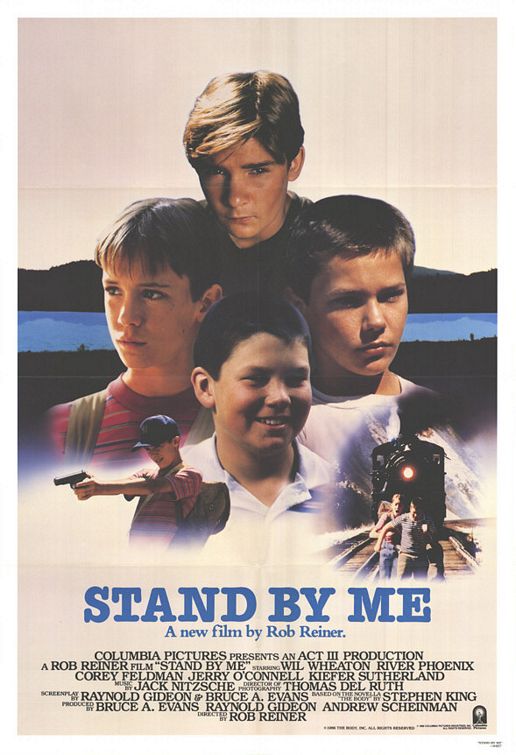
Looking back now, it almost seems incomprehensible that STAND BY ME almost wasn’t made. First, screenwriters Bruce A. Evans and Raynold Gideon had to convince a reluctant Stephen King to allow them to adapt his novella, The Body, which was based on the author’s own childhood. Director Rob Reiner then struggled to sell the script, finally finding a home with ALL IN THE FAMILY creator Norman Lear’s company AVCO Embassy Pictures. But just three days before film, Embassy was sold to Columbia Pictures, who had no interest in the unusual coming-of-age story. In the end, the entire seven-and-a-half million budget came out of the pocket of Norman Lear himself and the film was saved. But the sale of Embassy also meant there was no distribution deal in place and once again, no one was interested. Although Columbia Pictures has initially passed, a new studio executive, Guy McElwaine, agreed to screen the film at home. The charm of the story paired with his young daughters’ newfound love for the charismatic River Phoenix sealed the deal and STAND BY ME was finally given a wide release on August 22, 1986.
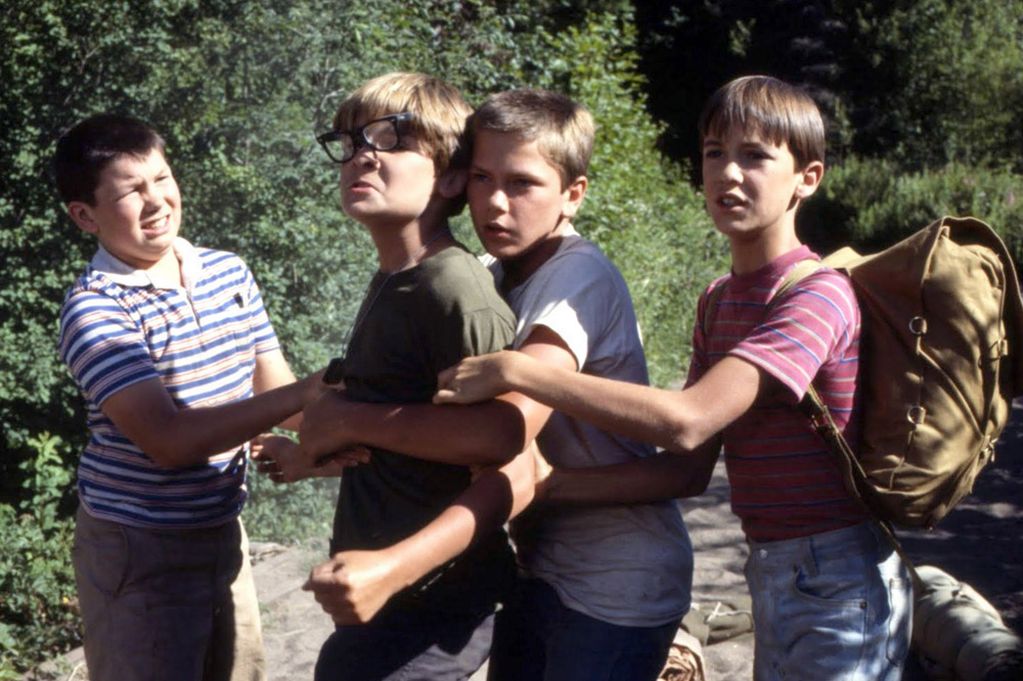
In the end, the struggles paid off handsomely. Bolstered by favorable reviews, STAND BY ME became a sleeper hit, earning $52 million dollars at the box office. The film was nominated for two Golden Globes, including Best Director and Best Motion Picture – Drama, while Evans and Gideon received Academy Award nominations for Best Adapted Screenplay. Although King was previously disappointed with the adaptations of CHRISTINE (1983) and THE SHINING (1980), he has spoken highly of the film, considering it to the best film adaptation of his work.
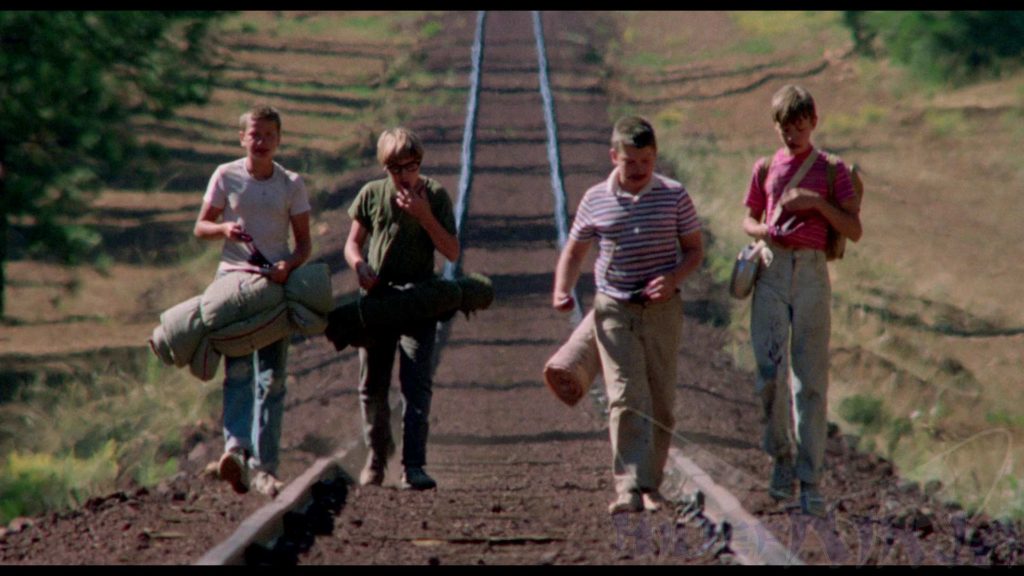
STAND BY ME is a coming-of-age story that’s different than most. In many ways, the pervading darkness in the film comes not from the dead body awaiting them in the woods, but instead from the insecurities that each boy faces due to a troubled home life. Through a series of flashbacks, we’re given insight into Gordie’s home life and his relationship with his older brother, Denny (John Cusack), who was killed earlier that year in a car accident. In addition to his loss, Gordie’s relationship with his parents has significantly soured, his mother is withdrawn and his father continuously lashes out at him. In one flashback, Gordie stands by his brother’s grave, while his father tells him that he should be dead instead.
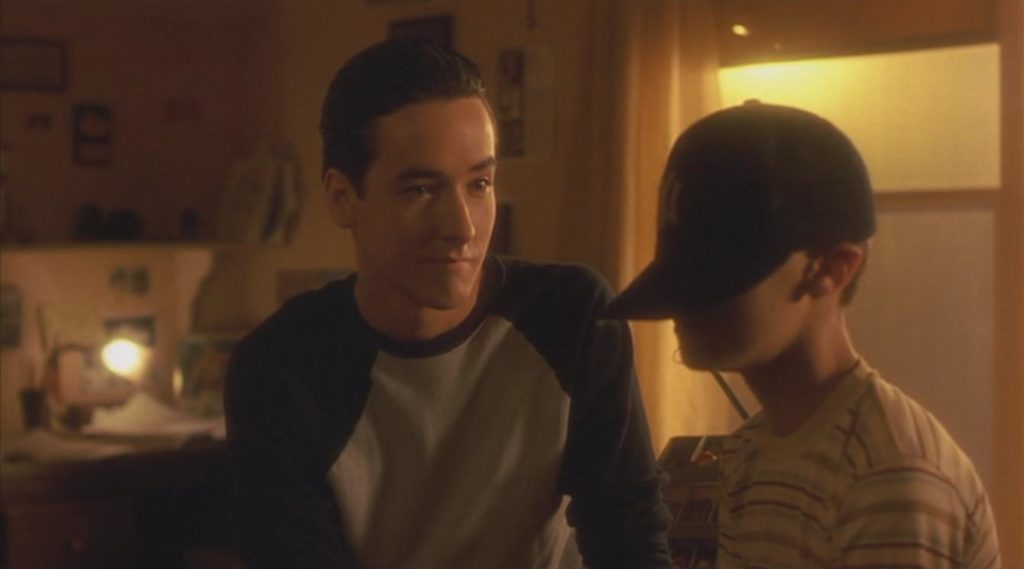
The rest of the boys don’t fare any better. Gordie’s best friend and the de facto leader of the group is Chris Chambers, a charismatic boy who comes from the wrong side of the tracks. His family are known thieves and alcoholics – Chris speaks of his father drinking heavily and beating him – and his older brother, Eyeball (Bradley Gregg) is also part of Ace (Kiefer Sutherland)’s gang. Gordie’s father berates him for hanging out with Chris, calling him a thief and accusing him of stealing milk money from their school. Later on, in a campfire confession to Gordie, Chris admits he did steal the milk money but that he felt incredibly guilty afterwards and forced himself to return the money but their teacher said that the money was never returned and showed up a week later with a new sweater. Chris then breaks down in tears, telling Gordie that if he can just get out of their town, to a place where no one knows his name, then maybe he might have a chance to succeed.
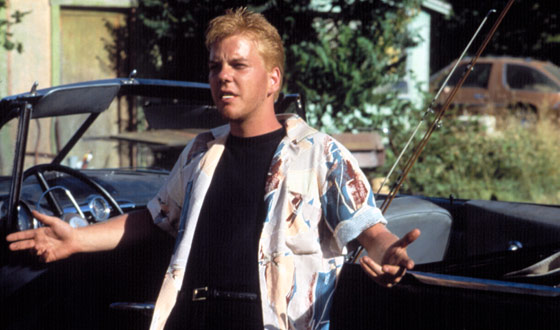
Likewise, our first introduction to Teddy immediately highlights his mutilated ear, which came at the hands of his own father, who held him down against a hot stove. Later on, as the boys escape the junkyard where they stopped to get water, Teddy is singled out by the junkman and told his father is a “loony” because he is in a mental hospital. This enrages Teddy, who has to be physically restrained, and he breaks down in tears sobbing that his father is a hero because he stormed the beaches at Normandy. Although the other boys cannot understand it, Teddy idolizes his father and emulates a soldier in both his dress and actions. He even goes so far as to hold a “stand-off” with an on-coming train, where he machine-guns invisible bullets until Chris eventually drags him off of the train tracks. Even before we’re told at the end of the film, we know Teddy’s story won’t end as happily as the other boys. And while we aren’t given much insight into Vern’s home life, aside from his fear his older brother, Billy (Casey Siemaszko), who hangs out with Ace and boosts cars, we can glean from his desire to gain the boys’ approval and the hours spent digging under his house for a jar of pennies, that he might also be neglected at home.
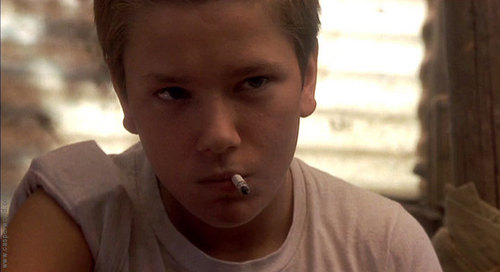
And so, the two-day journey into the woods to find the body of a missing boy isn’t just driven by a macabre fascination, the boys want to be heroes, they need to feel significant, but this changes when they finally see the body. Chris becomes protective over it, standing up to Ace and his gang of bullies so that the dead boy can remain in peace. Gordie is not horrified by the rotting corpse so much as he is by the indifference of death. He truly believes he should be dead instead because his father has repeatedly told him that he is worthless. It’s a heavy moment for a ten year-old and it takes the intervention of Chris to make him realize that his life is special. Finally, we jump back to an older Gordie, who is reflecting on his moment in the wake of the unexpected death of Chris. Despite the odds being stacked against him, Chris made it through college and became a lawyer but was killed trying to break up a fight in a restaurant. Once again, like the dead boy in their childhood, death remains indifferent and cold.
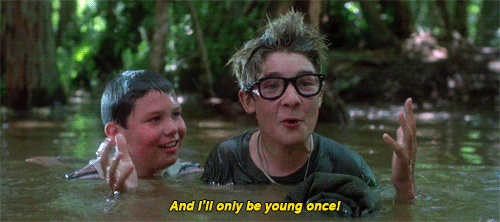
It’s a particularly poignant turn, especially considering the untimely death of Phoenix, who like Chris, remains forever young in our memories, clad in dirty blue jeans and a buzzcut, etched in summer sunlight, eternally cool. Phoenix would be propelled into stardom with the success of STAND BY ME and he would go on to star in a slew of successful films, including RUNNING ON EMPTY (1988), which earned him an Academy Award nomination for Best Actor in a Supporting Role. At the time of his death in 1993, Phoenix had lined up a handful of projects that would have cemented his status as one of the most talented actors of his generation, including INTERVIEW WITH A VAMPIRE (1994), THE BASKETBALL DIARIES (1994), TOTAL ECLIPSE (1995) and MILK (2008), which Gus Van Sant had already begun working on in the early 90s.
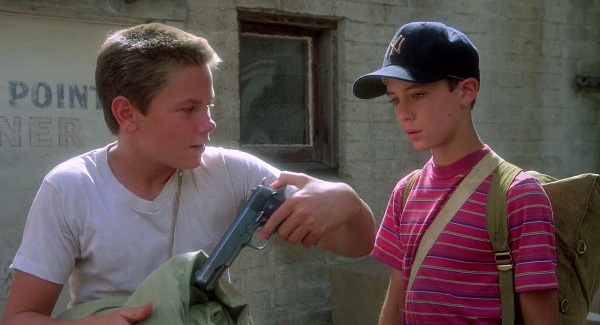
The loss of Phoenix is immediately felt on any re-watch of STAND BY ME as his talent was so pure and natural, that there’s never any doubt that he wasn’t as cool and complicated as Chris. Thirty years later, the little movie that could isn’t just special because it overcame the odds, but because it was able to crystalize such a special talent. Much like Gordie’s bittersweet recollections of his childhood friend, we can look back at the performance that Phoenix shared with us and feel reassured that even if it’s fleeting, we experienced something truly magical for just a moment.
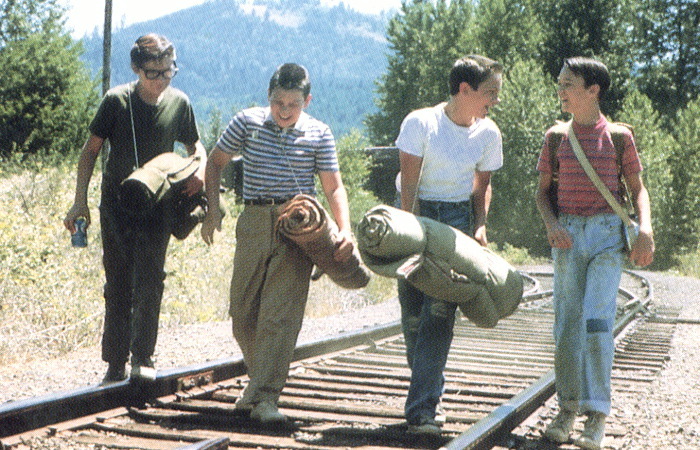
Tags: Bruce A. Evans, Casey Siemaszko, corey feldman, Jerry O'Connell, John Cusack, Kiefer Sutherland, Norman Lear, Raynold Gideon, River Phoenix, Rob Reiner, Stephen King, Tributes, Wil Wheaton

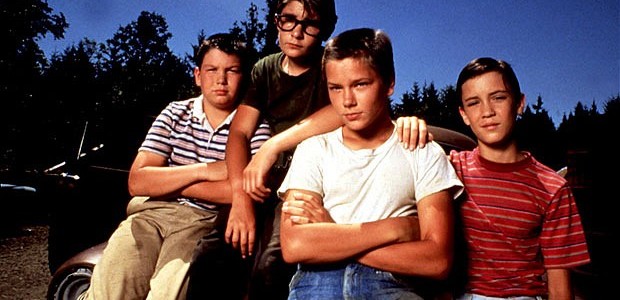
No Comments